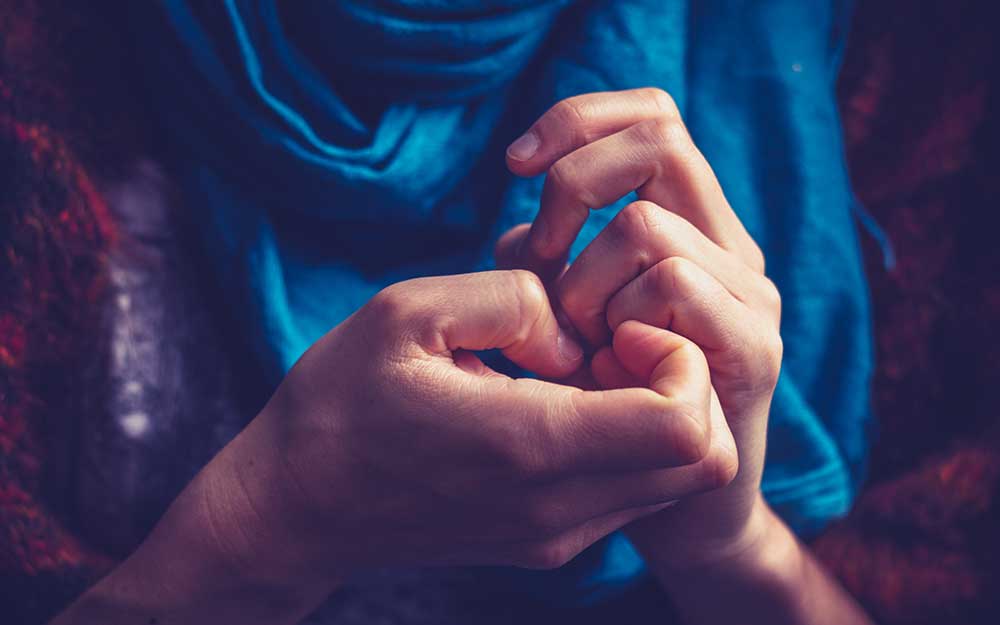Skin picking and hair pulling can be signs of very serious disorders. The habits are an effort to alleviate stress, escape from anxiety, attempt to correct a perceived flaw, or as an automatic response to tension. These differences help to classify the issue as being part of obsessive-compulsive spectrum disorder, such as body dysmorphic disorder, trichotillomania (hair pulling disorder), or excoriation disorder (skin picking disorder).
The first step in determining how skin picking and hair pulling should be addressed is figuring out the function the behavior has for a patient, says Dr. Brenda Bailey, clinical supervisor of OCD and Anxiety treatment in Oconomowoc.
“For us, the treatment is founded on assessing why a particular behavior is occurring, and specifically we evaluate what comes before and after a behavior to determine the function,” she says.
When seeking treatment, Dr. Bailey recommends finding someone with experience in habit reversal training, which is the main approach Rogers uses for addressing skin picking and hair pulling.
How does habit reversal work?
Habit reversal involves assessment, awareness training, and competing response training, according to Dr. Bailey. Because every case of skin picking and hair pulling is distinct, the care team needs to gather information and create a detailed account of what occurs during the unwanted behavior and how the patient feels before, during, and after.
“Let’s say, for example, that someone pulls their hair while driving to work,” Dr. Bailey says. “Emotions contributing to this event may be anxiety over the tasks that need to be completed that day, and we may find that the person experiences a reduction in anxiety after pulling hair. We would then identify commuting to work as a high-risk situation for a hair pulling episode and anxiety relief as maintaining the pulling.”
In this example, awareness training may also include everything from mapping out the specific movements and muscles that are involved, noting the specific areas pulled or picked, and the act of grabbing for particular hairs. This level of detail allows for a smoother application of a competing response to replace the unwanted behavior, which Dr. Bailey recommends being both easy to carry out for at least one minute and inconspicuous, such as clasping their hands together instead of picking or pulling.
How serious is skin picking and hair pulling?
If left untreated, continued skin picking and hair pulling can result in physical damage, such as scarring, infections, or tissue damage. Emotional distress from continued skin picking and pulling can negatively impact one’s mental health as well.
Some people with the habit of pulling hair out will also ingest it. Small amounts of hair can make it through the digestive system, but routinely consuming hair over the course of a few years can form a hairball inside the digestive tract. This can result in weight loss, vomiting, obstruction of the digestive system, and even death.
One thing that Dr. Bailey wants people to know is that both disorders occur more frequently than many assume.
“Prevalence rates for both skin picking and hair pulling are roughly 1 to 2%, whereas the prevalence rate for Schizophrenia and bipolar II disorder are less than 1%,” she explains. “People tend to believe the latter conditions are more common.”
Dr. Bailey says that someone should reach out for a higher level of care for skin picking or hair pulling if symptoms haven’t improved after traditional outpatient care, or if the habits are causing significant impairment of daily life.
While these disorders can develop into serious medical concerns, they are both highly treatable. Learn more about Rogers OCD and Anxiety disorder care or request a free, confidential screening for admission to Rogers.
If you do not feel you, or a loved one, needs treatment right away, but may be concerned, we offer online quizzes to possibly provide some relief. While these quizzes do not provide a diagnosis, it could be the first step in finding the treatment you, or a loved one, may need.


